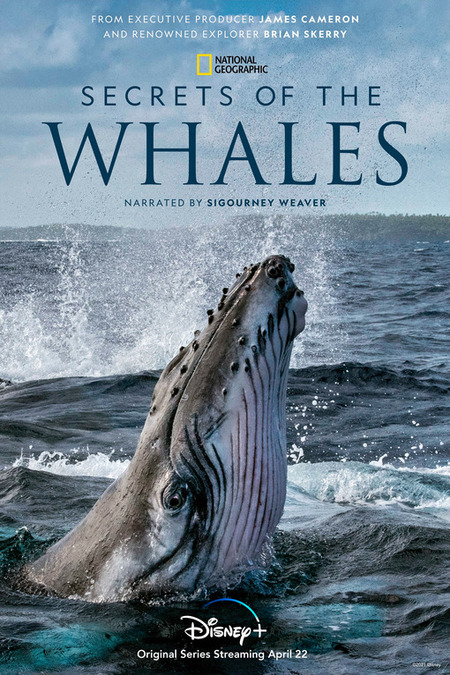Humanity is by all accounts a remarkable species.
However, for all that remarkability, we are also beset by an impressive number of flaws, one of which is the religiously encouraged arrogance that we are the unbridled, unstoppable masters of the universe.
It is an arrogance that borne of the likely erroneous assumption that all life on earth must by definition be inferior to us since who can match us our intellect, culture, society, and achievements?
And yet as a new National Geographic series, Secrets of the Whales, makes beautifully and enrapturingly clear, humanity may not have the hitherto thought monopoly on society and culture with evidence coming to light that a considerable number of whale species enjoy complex and emotionally rich familial and societal bonds.
In four episodes pleasingly full of sumptuously filmed underwater footage, we bear witness to the way in which orca, humpbacks, beluga (and narwhals) and sperm whales all exhibit what can only be described as the foundation stones of culture and society.
Lest you think this is some sort of hopeful anthropomorphising, these summations are the result of years of scientific study which have revealed how many whales exhibits behaviours which we currently regard as exclusively human.
Take the sociability of beluga which gather in ancestral summering grounds in the Canadian Arctic in their thousands, ostensibly to give birth in waters that are warmer than their usual environment in the northern reaches of the country.
Scientists have observed that rather than simply getting straight down to business, beluga spent a considerable amount of time in sociable groups, their body language and vocalisations indicating they are enjoying spending time with each other.
This is not the action of unthinking, unfeeling lower order mammals who care only for satisfying basic natural urges; rather what we witness are animals happily hanging out together, taking the time to simply be, much as we do when we catch with friends.
It’s astonishing and revelatory to watch because there is nothing utilitarian about what they’re doing, with the act of giving birth taking part against a backdrop of real and meaningful communal support.
That sense of community is evident among sperm whales, orca and humpbacks too, though it does of course find different depending on the species.
One clear link between all these different species is the way in which they employ language.
From the click-like language of sperm whales to the season-to-season changing of songs employed by male humpbacks, Whales exhibit a complex and beguiling use of language.
Using different tonal combinations that are called “coda”, sperm whales for instance have access to up to 24 different combinations of clicks to create long and involved conversations with each other, which enable everything from movement through to hunting in the depths of the oceans, some 3000 feet down for giant squid.
One of the researchers who has studied sperm whales for sixteen years notes that humanity has access to 26 letters with which it writes complex and amazing books so why couldn’t whales do similarly extraordinary things with their 24 nuanced and specialised coda.
There is also strong evidence that whales engage in sustained learning activities with mothers in particular spending a significant amount of time teaching their youngsters the skills they will need and imparting the crucial knowledge they require to ensure their own survival and that of their often close family group.
One such example is the way in which orcas in Peninsula Valdes in Argentina teach their calves to ride a wave at just the right moment to sail up onto the beach and snatch seal pups to eat.
This is not instinctive behaviour but one passed down from generation to generations by mother whales who know the survival of their pod depends on it.
These behaviours differ within species groups around the world, demonstrating that whales have just as much diversity of cultural and societal expression as we do.
One thing that emerges quite strongly in Secrets of the Whales is how much these various species interact interact beyond what is practically necessary.
If they were simply eating and breeding machines, then you wouldn’t see much more than prosaic robotic fulfilment of instinctual urges but what research has shown is that a great deal of time and effort is employed, whether its undertaking an arduous migration or coordinating so-called “bubble nets” to draw prey such as herring to the surface, in spending time and caring for the whales in an individual’s family group or clan.
It’s mesmerisingly touching to watch and really drives home the fact that our view of whales, and likely great swathes of the natural world, have been informed not by research and observation but by erroneous assumptions that are quickly and wonderfully being overturned by close study of creatures that are far closer to being human that anyone previously thought.
Secrets of the Whales is currently screening on Disney Plus.
